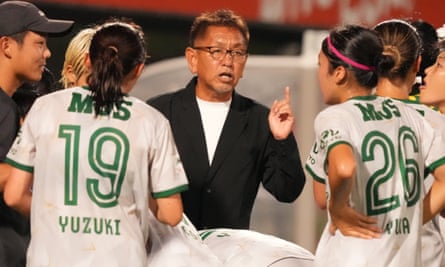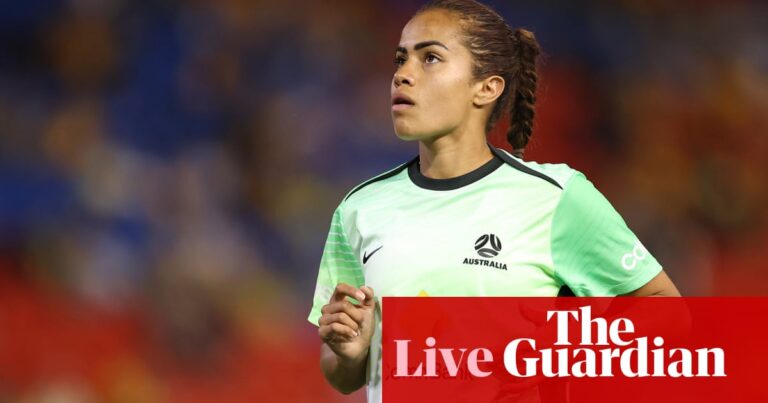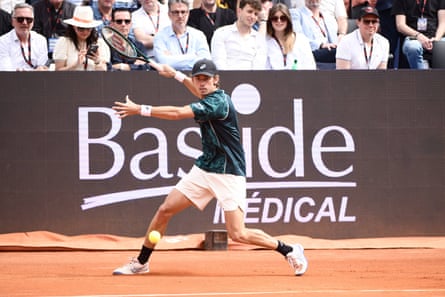Away from the dazzling lights of the city and tucked in the leafy suburbs of greater Tokyo is a little-known entity whose efforts in youth development fly curiously under the radar. Welcome to Tokyo Verdy Beleza, Japan’s most successful women’s football team.
Their success is validated not only by the country’s most occupied trophy cabinet but also by a staggering record of academy graduates going on to perform at the highest level. The 2024 Ballon d’Or nominee Yui Hasegawa of Manchester City and the West Ham forward Riko Ueki are two of several Beleza academy graduates thriving in the English WSL. The Japan legends Mana Iwabuchi and Homare Sawa are two more graduates of high renown.
The 2024 Under-20 Women’s World Cup bronze boot winner Maya Hijikata and the standout performers Mayu Matsunaga and Rihona Ujihara are three recent examples who are likely to secure high-profile moves outside Japan in the near future.
So what makes this club of humble surroundings so efficient at producing top talent? For there is no abundance of wealth here. Nor do they have a state-of-the-art sports science department.

To answer this we must first detour and examine Japanese society from a broader perspective. Writing in an academic publication in 2019, the doctorate sociologist Osamu Takamine referred to the rapid increase in sports participation that occurs as children approach junior high school age, the years most commonly associated with the development of technical skills. Takamine also highlights the closing gender-gap during this period and that the numbers of females participating in sport rivals that of their male counterparts.
If you were to board a Tokyo train on any given Saturday morning you would probably be met with large groups of school-agers clad in sporting attire, often with hefty sporting apparatus in tow. A similar sight can be seen of early evening as these same youngsters head home after a strenuous day of sporting activity.
Football is considered Japan’s second most popular sport behind baseball. With such high numbers of committed youngsters pursuing their sport of choice there is a large talent pool to draw from.
Beleza, as the only professional women’s football club in the Japanese capital, find themselves in a position of strong advantage. Their on-pitch success has earned them a reputation of great appeal to many aspiring female footballers.
But it is not by geographical default alone that their prominence has come about. Their style of play and coaching methods are also to be commended.
Intricate passing skills and firm game understanding are two attributes commonly associated with Japanese players and Beleza’s philosophy lends itself to these qualities. Theirs is a front-foot approach that cherishes fluidity and cohesion.
After a recent league win the head coach, Takeo Matsuda, said: “In training we focus on our buildup play and harness a mutual understanding of how we will execute this during a match. Expressing the things we work on in training in actual competition is very important.”

It is through such training routines that the qualities seen from Japanese players in top leagues such as the WSL are originally brought to the surface.
But the system is not without its drawbacks. An overemphasis on rigorous training and teamwork leaves one wondering whether there is room for individual expressions of creativity. In collectivist societies such as Japan, priority is placed on the good of the group over the individual. While this allows for a high degree of cohesion, players often appear at a loss when forced to choose between playing in a teammate or taking the decidedly selfish option of going for goal.
after newsletter promotion
This seems to have done little to hinder the appeal of Japanese players to European and American clubs, where the environment is more physical. Seemingly, the agility and sharp technical skills of the Japanese are something of a unique offering.
Japanese clubs such as Beleza find themselves in something of a compromise. Overseas clubs are swooping in for their promising youngsters at an alarming rate and little can be done to plug the talent leakage. For the player, the allure of a career overseas is irresistible and it is to the betterment of their game.
Speaking to the Guardian this year, the Houston Dash forward and Beleza academy graduate Yuki Nagasato highlighted some of these benefits: “In football physical attributes are extremely important these days. Also the number of pacey players has increased in recent times and a player is able to acquire and adjust to these attributes by securing a move outside of Japan.”
With the progress of Japan’s professional league, the WE League, lagging behind that of the world’s best it is hard to find a reason why player might turn down an adventure abroad. The domestic league must transform itself into an environment capable of offering similar, if not better, opportunities for growth and development.
Until this is achieved, Japanese talent factories such as Beleza must find reassurance in their ability to produce players capable of competing at the highest level. The production line shows no sign of slowing and continues to operate with astounding efficiency.
Get in touch
If you have any questions or comments about any of our newsletters please email [email protected].
This is an extract from our free weekly email, Moving the Goalposts. To get the full edition visit this page and follow the instructions.
Source: theguardian.com



















